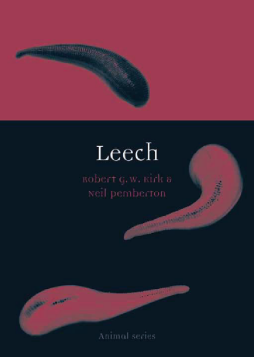
Additional Information
Book Details
Abstract
Armed with razor-sharp teeth and capable of drinking many times its volume of blood, the leech is an unlikely cure for ill health. Yet that is exactly the role this worm-like parasite has played in both Western and Eastern medicine throughout history.
In this book, Robert G. W. Kirk and Neil Pemberton explore how the leech surfaces in radically different spheres. The ancients used them in humeral medicine to bring the four humors of the body—blood, phlegm, and black and yellow bile—back into balance. Today, leeches are used in plastic and reconstructive surgery to help reattach severed limbs and remove pools of blood before it kills tissue. Leeches have also been used in a nineteenth-century meteorological barometer and a twentieth-century biomedical tool that helped win a Nobel Prize. Kirk and Pemberton also reveal the dark side of leeches as they are portrayed in fiction, film, and popular culture. From Bram Stoker’s Dracula to a video game player’s nemesis, the leech is used to represent the fears of science run amok. Leech shines new light on one of humanity’s most enduring and unlikely companions.
“Kirk and Pemberton are . . . fond of their subject . . . but they are particularly interested in its cultural symbolism. While there is plenty of solid science in this book, the most distinctive sections deal with the psychology of being bled, and our temerity for daring to equate the leech with all things nasty in ourselves.”
— Times Literary Supplement
“This book shies away from the facile association of leeches with parasites to view them, instead, as a symbiotic relationship with humankind, whereby both man and leech have benefited from the creature’s extraordinary abilities. This short but rich volume thus explores the leech as both animal and symbol, from ancient medical remedy to modern horror film, from emblem of capitalism to biomedical tool . . . Well illustrated and engagingly written . . . the authors ably tie their historical and cultural research to the natural history of the leech, offering an interesting perspective on the history of science.”
— British Journal for the History of Science
Robert G. W. Kirk is Wellcome Research Fellow in the Centre for the History of Science Technology and Medicine, University of Manchester, where Neil Pemberton is a research associate.
